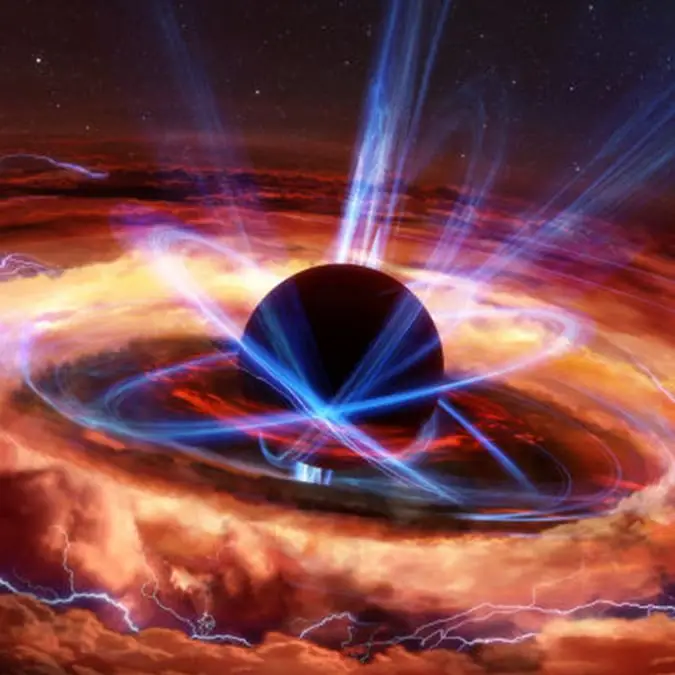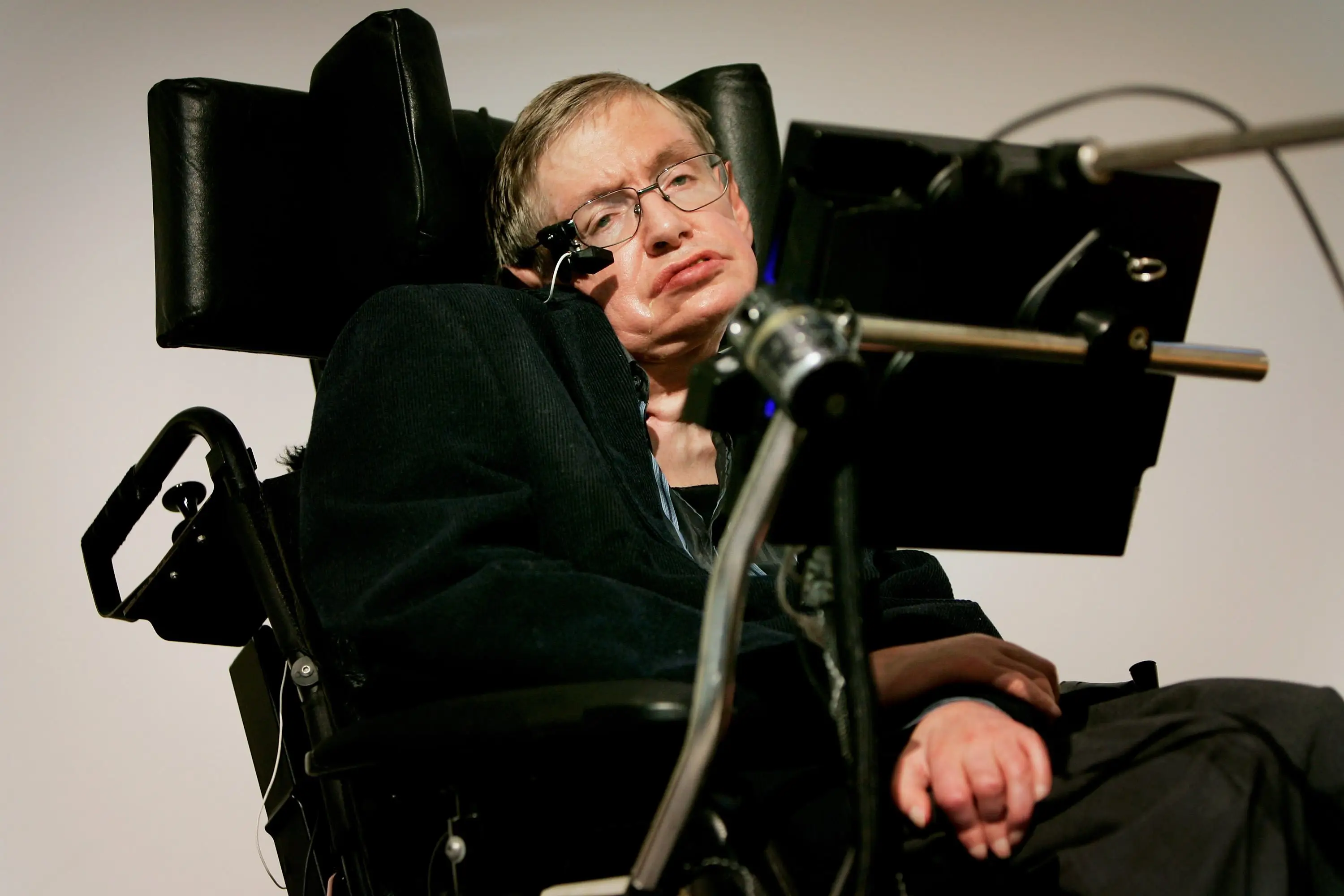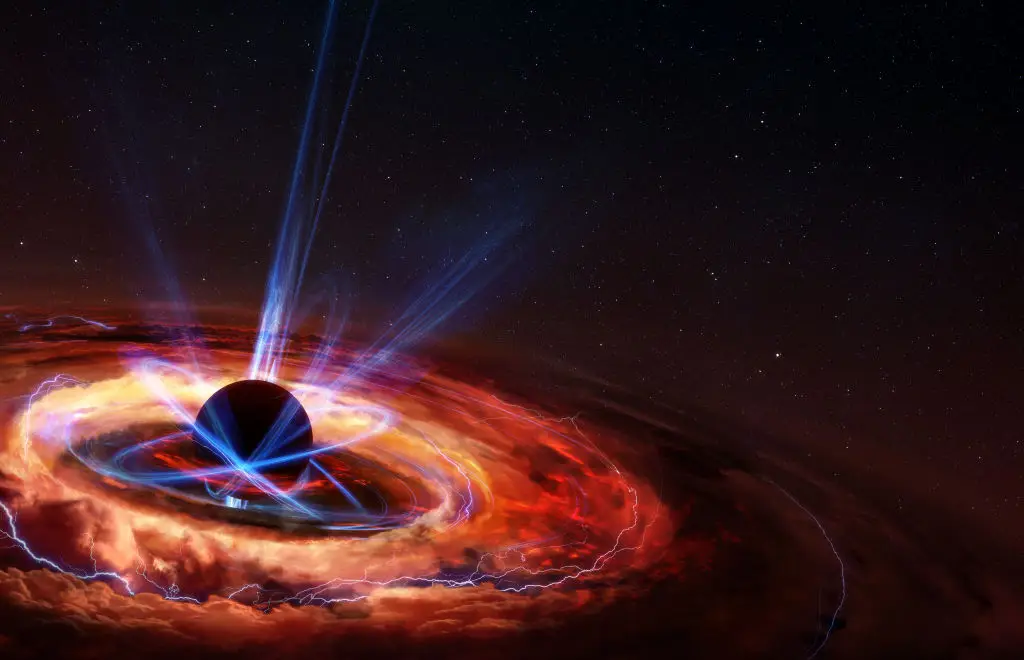
Scientists are warning the public that a black hole spectacle which was predicted by Stephen Hawking may be on the horizon.
The discovery has left experts worried that the black hole could explode within the next decade.
This would be a never-before-seen cosmic event, with scientists in Massachusetts saying that the black hole has a 90% chance of erupting by 2035.
It is thought that the black hole was created just seconds after the Big Bang had occurred, making it a fossil in our universe.
Advert
According to a report by the Express, lead study author Michael Baker, who is also an assistant professor of physics at UMass Amherst, said: “We’re not claiming that it’s absolutely going to happen this decade, but there could be a 90% chance that it does.”
We have been aware of black holes, which are regions of space that have a gravitational field so intense that no matter or radiation can escape, since the 1700s and have gained more insight on them since then.

Famous physicist Stephen Hawking conducted a series of studies into primordial black holes back in the 1970s.
Primordial black holes differ from others as they are thought to have formed in the extreme conditions of the very early universe, instead of forming from collapsing stars.
Talking about his research, Hawking said: “I wondered, can one have atoms in which the nucleus is a tiny primordial black hole, formed in the early universe? My investigations revealed a deep and previously unsuspected relationship between gravity and thermodynamics, the science of heat, and resolved a paradox that had been argued over for thirty years without much progress: how could the radiation left over from a shrinking black hole carry all of the information about what made the black hole?
“I discovered that information is not lost, but it is not returned in a useful way—like burning an encyclopedia but retaining the smoke and ashes.
“To answer this, I studied how quantum fields or particles would scatter off a black hole. I was expecting that part of an incident wave would be absorbed, and the remainder scattered. But to my great surprise I found there seemed to be emission from the black hole itself.”

If the explosion does take place as predicted, it has the potential to ‘revolutionize physics and rewrite the history of the universe’, as the team of researchers wrote in the Physical Review Letters journal.
They continued: “Exploding PBHs could provide transformative insights into our universe. They would provide evidence for the existence of PBHs, evidence of Hawking radiation and give definitive information on the fundamental particles present in nature.
“We should ensure that we are well prepared to make the most of a nearby exploding PBH in the near future.”